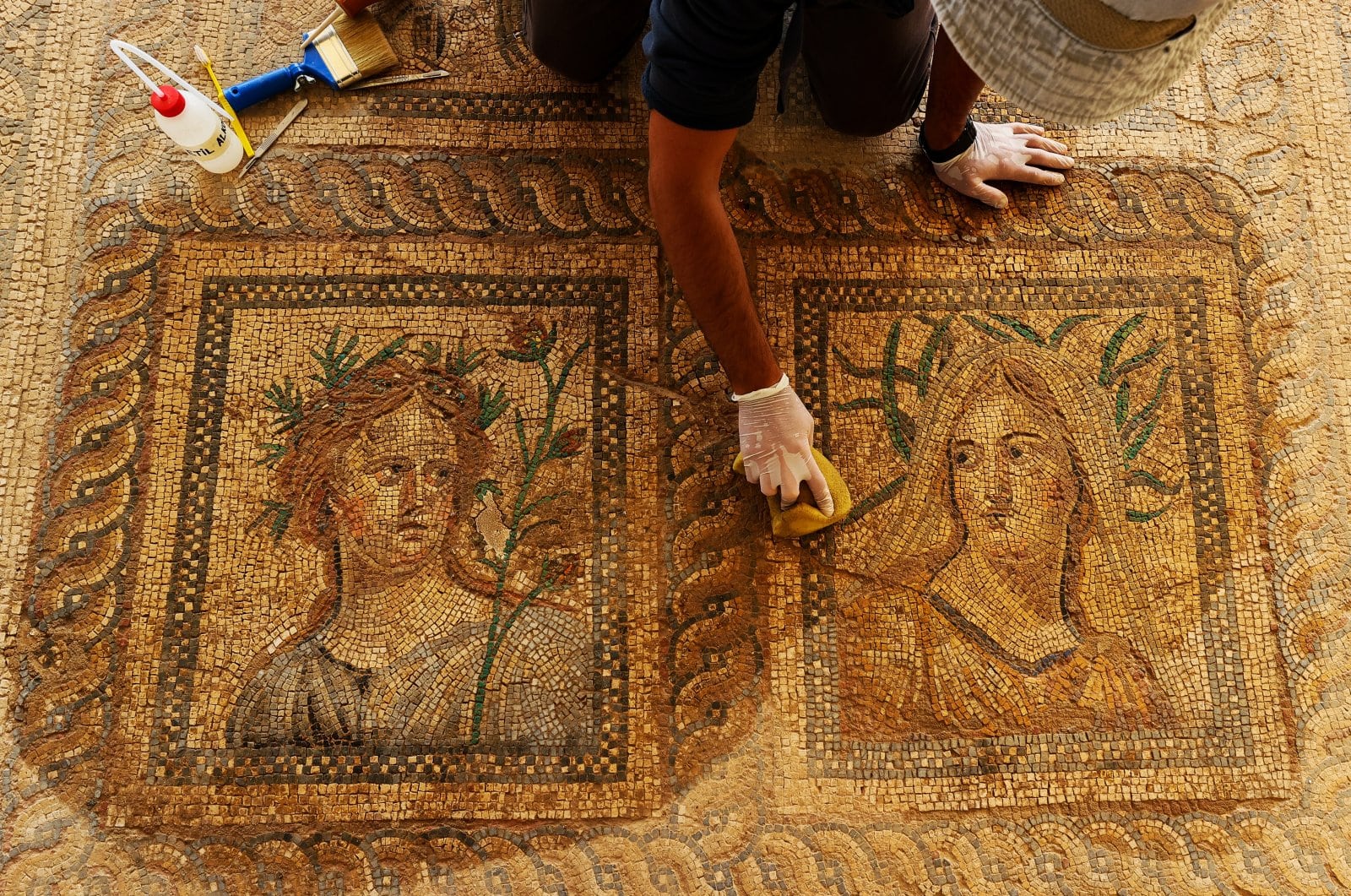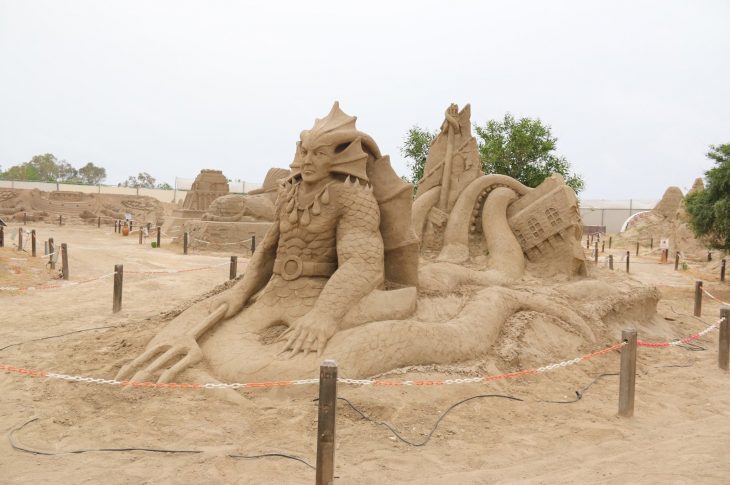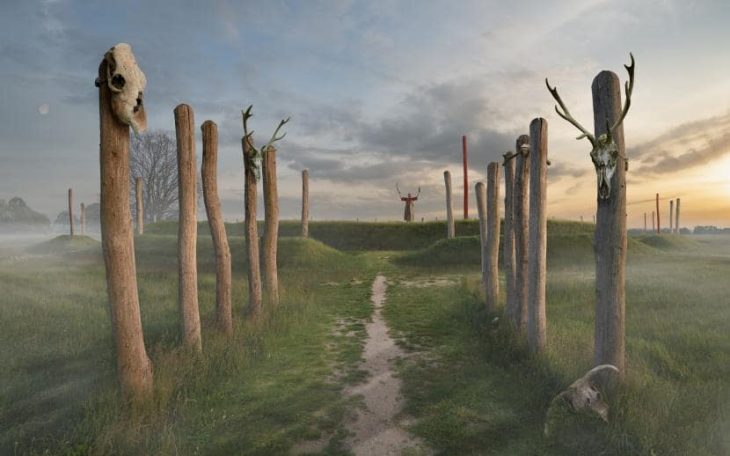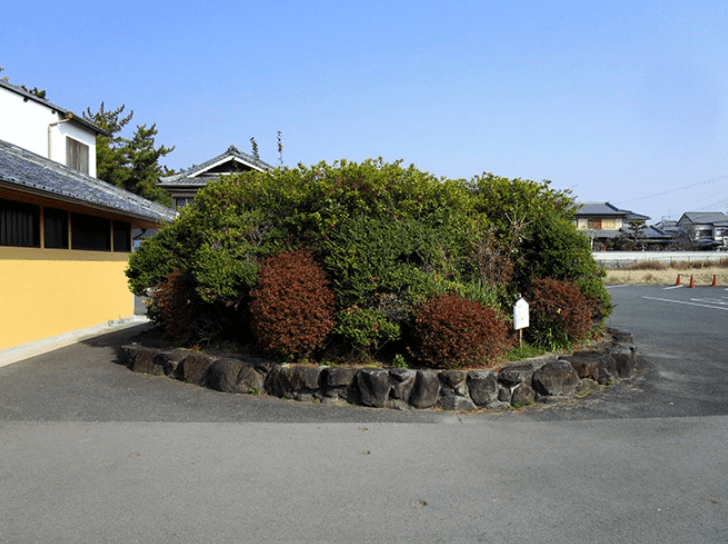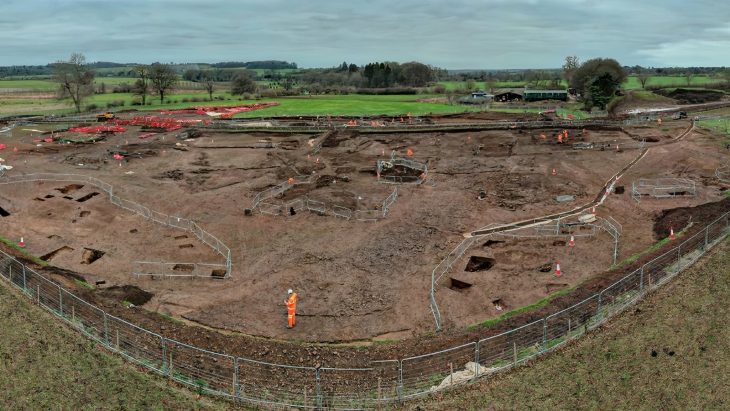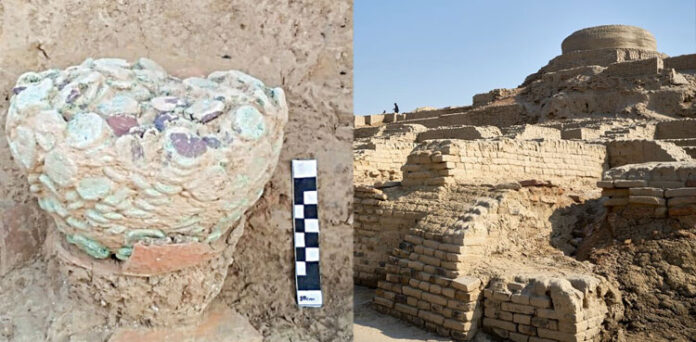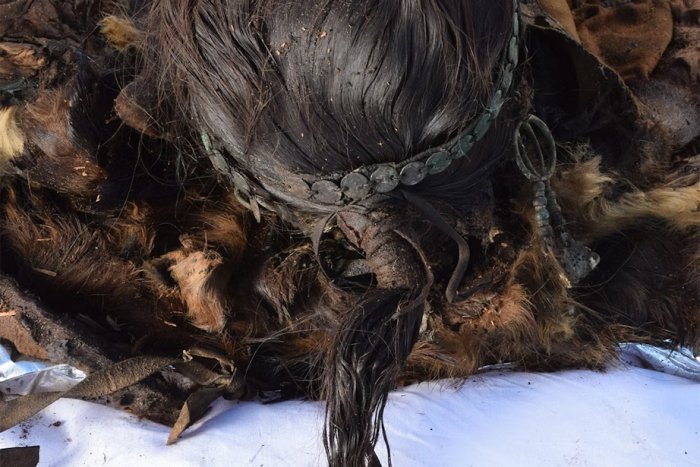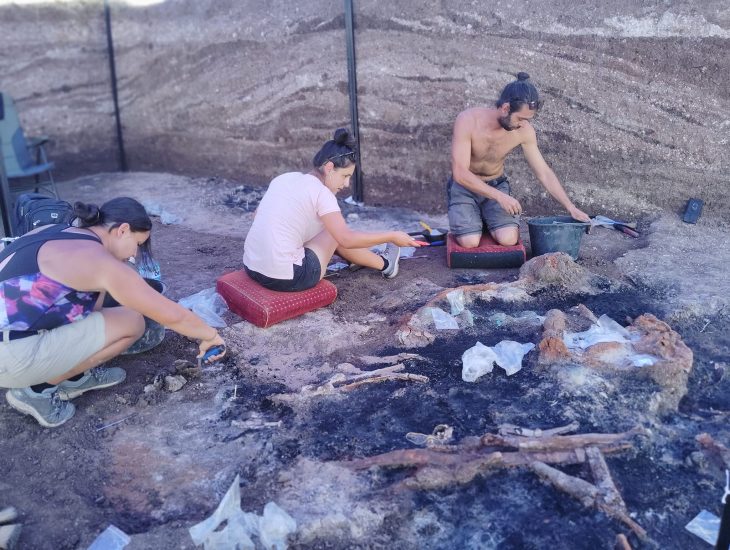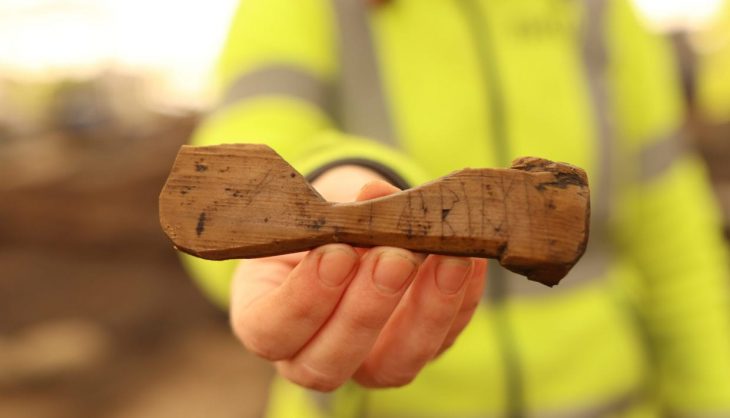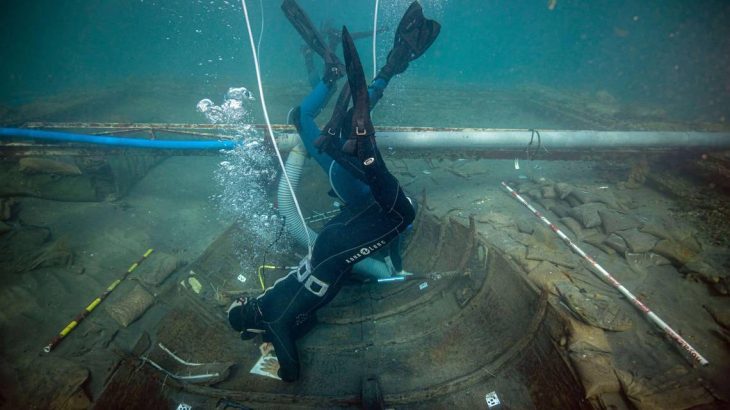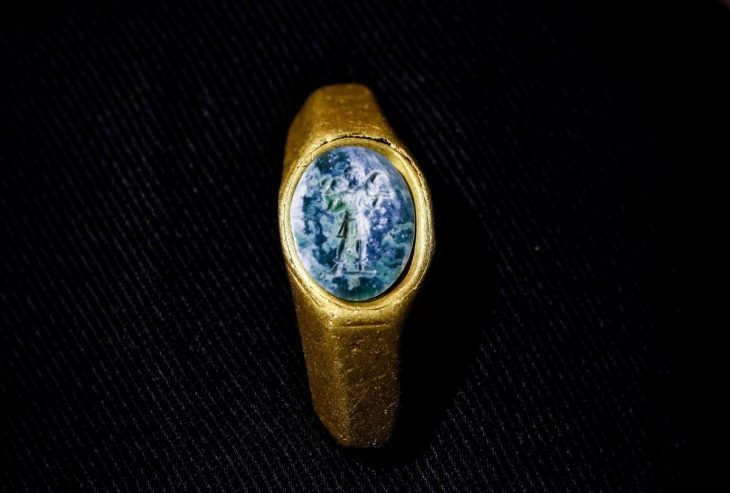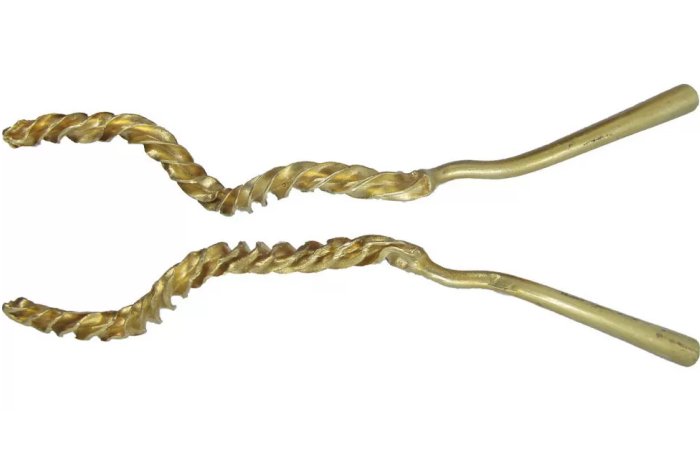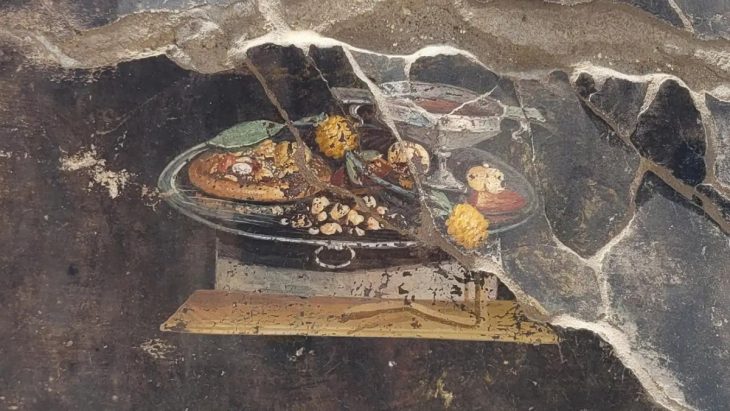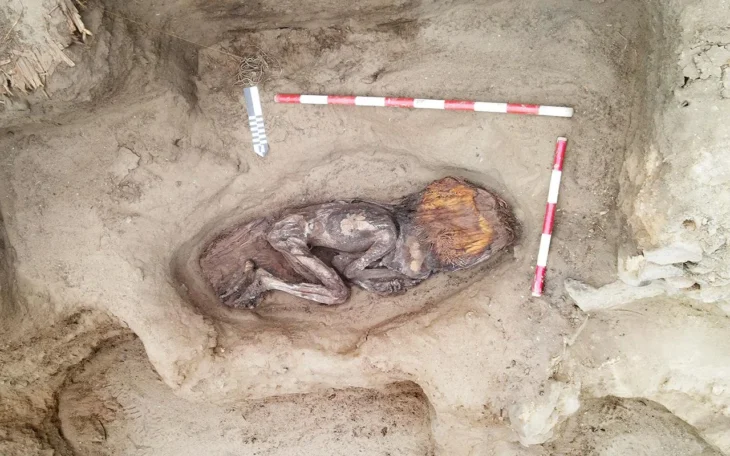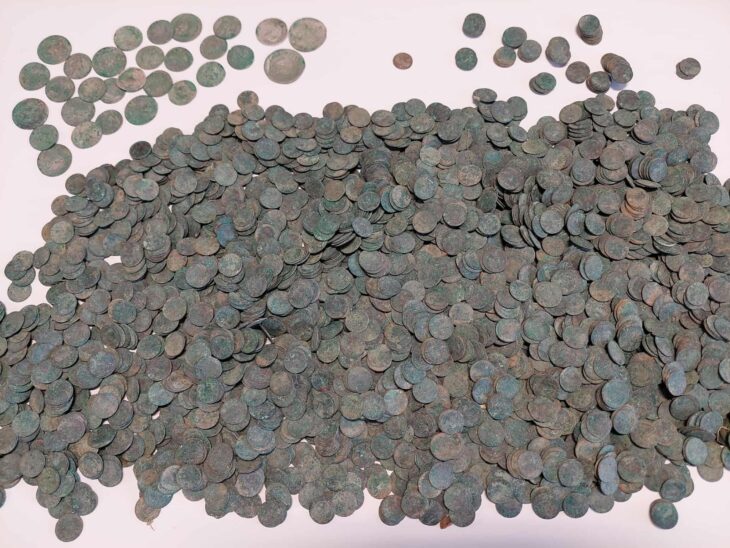In the ancient city of Metropolis in the Torbali district of the western Izmir province, mosaics portraying Eros, the Greek god of love, Dionysus, the Greek god of fertility, theater, and mirth, and his wife Ariadne have been restored to their former grandeur thanks to the painstaking labor of restorers.
While the Ministry of Culture and Tourism and Manisa Celal Bayar University continue to excavate in Metropolis throughout the year in order to uncover the city’s mysteries, the mesmerizing mosaics were restored using modern techniques. The state-of-art techniques have provided the mosaics with a fresher look and also ensured the preservation of their stones and colors.
The mosaics that have been restored also feature depictions of masks, the symbols of theater, and fish and bird figures that describe the fertility of the region along with Eros, Dionysus, and Ariadne.
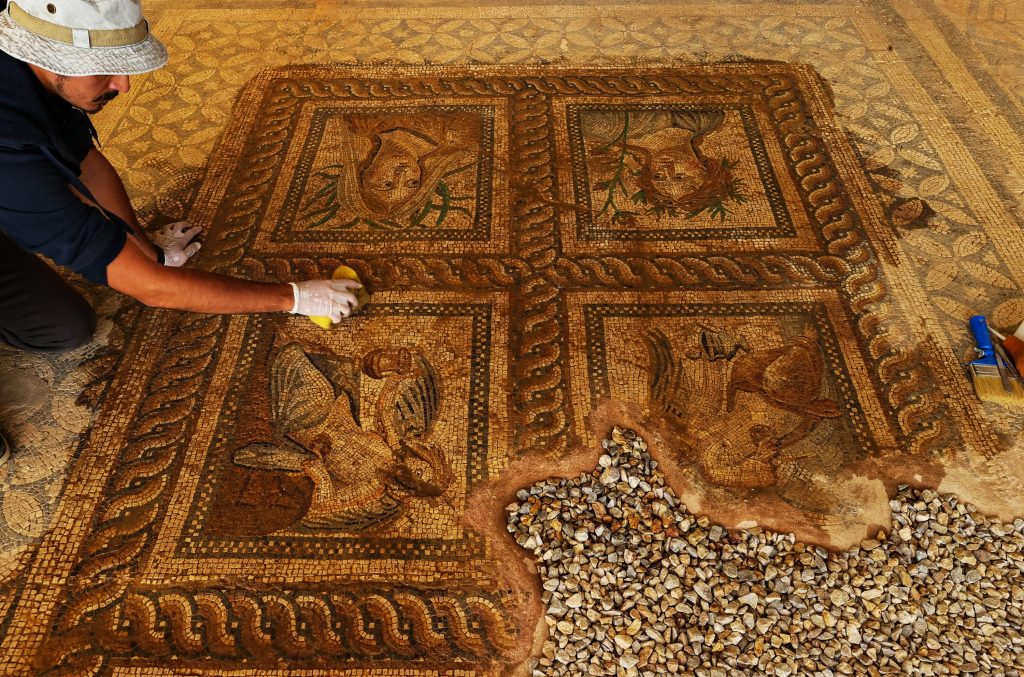
Prof. Serdar Aybek, the excavation’s director, told Anadolu Agency (AA) that Metropolis, which has rich fields, connects Central Anatolia and the Aegean, and so has housed various civilizations in the past. Aybek pointed out that Metropolis is notable for its mosaics, saying, “We found the mosaics in the area (that) we believe to be a guesthouse and sustained their restoration here as well.”
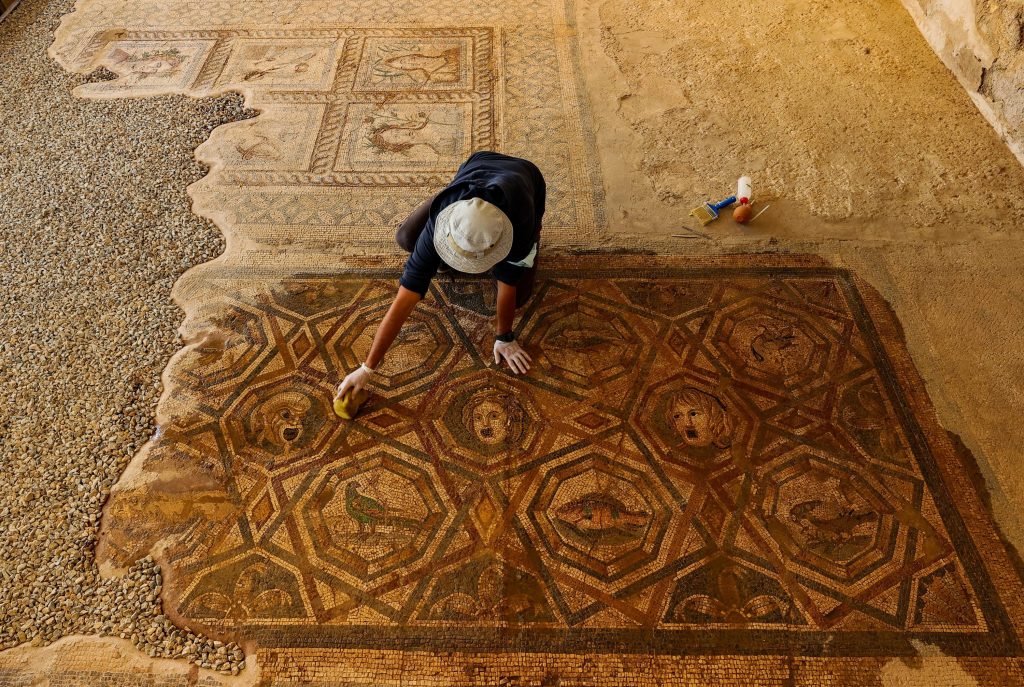
Stating that the guesthouse where the mosaics are located is connected with the theater, Aybek added, “We think that the guests who came to the Metropolis for the theater were hosted here. Therefore, Dionysus, who is known as the god of theater and entertainment, his wife Ariadne and Eros were often used in the mosaics on the floor of this house. We see great delicacy in the mosaics. In these mosaics, which are almost like a painting, shadow, toning and even facial expressions are conveyed very successfully and strongly.”
📣 Our WhatsApp channel is now LIVE! Stay up-to-date with the latest news and updates, just click here to follow us on WhatsApp and never miss a thing!!
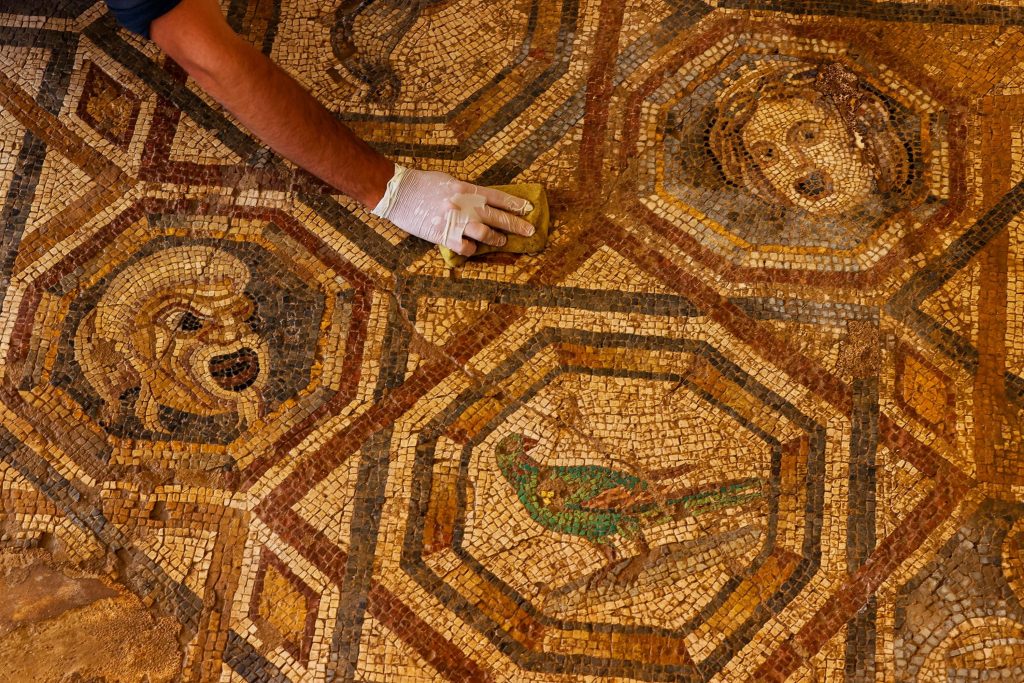
According to the excavation head, love is emphasized in the mosaics. “Dionysus and Ariadne are looking at each other in the mosaics. There is Eros between them. This is actually a message of love transmitted from about 1,800 years ago.”
The history of Metropolis, known as the “City of Mother Goddess,” stretches from the first traces of Late Neolithic settlements to the Classical Age, from the Hellenistic Age to the Roman and Byzantine periods, the Anatolian beyliks (principalities), and the Ottoman era.

